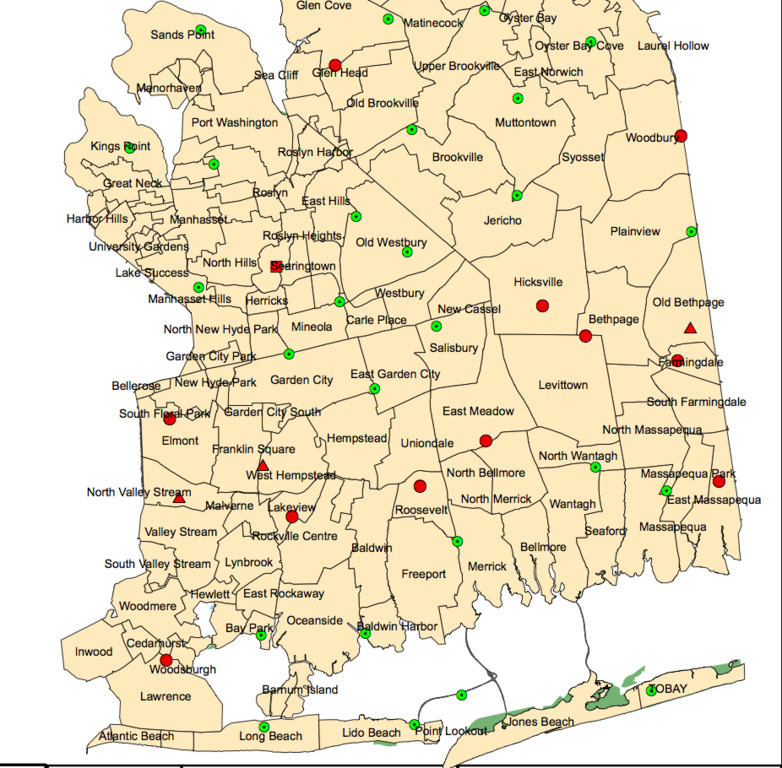At war with mosquitoes
County spraying after historic storms lead to infestation
Because of severe mosquito outbreaks recently, the Nassau County Department of Health recently upped its mosquito surveillance program and may soon begin spraying to protect the health of residents from mosquito-borne infections such as West Nile virus.
The department recently confirmed the first case of West Nile virus in a Nassau resident this year. The individual, whose name has not been released, is a male between the ages of 40 and 50 who resides in the Town of Hempstead. According to Mary Ellen Laurain, a department spokeswoman, the individual is recovered and did not require hospitalization.
The county has set up 42 traps to test for West Nile virus. As of Aug. 25, 22 samples had tested positive for West Nile virus, including at sites in or around Bellmore, Merrick, East Meadow, Valley Stream, Elmont, Franklin Square, West Hempstead, Rockville Centre, Cedarhurst and Lawrence.
The county does not reveal the locations of its sampling sites, in order to protect the safety of the traps, said Laurain.
To lure the mosquitoes, the county uses two types of traps. The first is a light trap, which uses dry ice, the solid form of carbon dioxide. The trap is designed to mimic respiratory gases. "The mosquitoes think they are close to a human, and they are looking for a blood meal,” said Laurain. “So they're attracted into the trap that way."
The second trap is a gravid trap, which uses a food mixture to attract female mosquitoes that are ready to lay eggs.
After the mosquitoes are collected from the traps, they are brought to Nassau County laboratories, where they are separated by species. Next, they are delivered to New York State Department of Health laboratories for viral testing. The results are subsequently sent back to the county.
Mosquitoes become infected with West Nile virus when they feed on birds that have high levels of the virus in their blood, according to the U.S. Centers for Disease Control and Prevention. The mosquitoes then transmit the virus to humans and other animals through bites. West Nile virus is not contagious from person to person.

 59.0°,
Partly Cloudy
59.0°,
Partly Cloudy 




